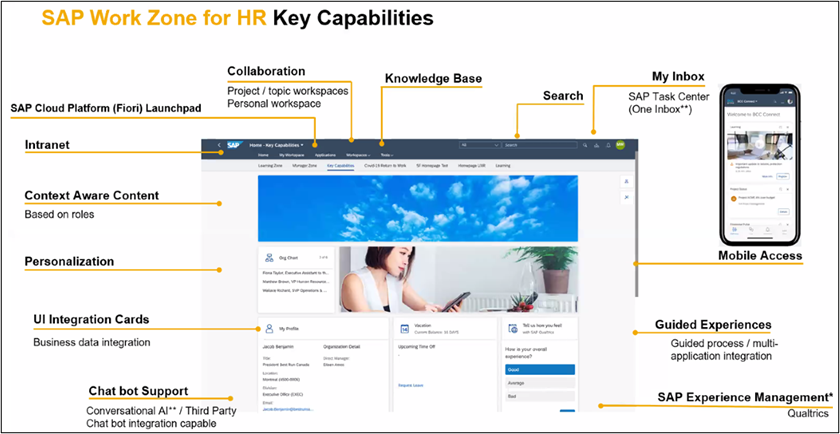Leading Through Uncertainty
It has been just over a year since the COVID-19 pandemic began and brought about changes not only to how organizations operate, but also changes to how we function in our everyday lives. Over the course of that time, each of us has navigated not only the global pandemic, but also a variety of other challenges including economic uncertainty, businesses closing, social injustice, and a polarizing political landscape. Through it all, we have found constructive ways to cope and to continue moving forward in positive ways in our lives, both personal and professional. We learned a lot about ourselves, our leadership styles and our employees and we exercised our muscles of creativity, communication, patience, empathy, and understanding.
As more of the population receives vaccinations and the US cautiously moves towards relaxing COVID restrictions, challenges still exist. It is our focus, however, that must change. We now must focus not only on leading during uncertain times, but on leading through uncertainty. As leaders, we are now challenged with bringing our employees and our organizations through the current challenges and to stable footing on the other side of these crises.
One of the first things necessary in navigating through the current challenges is to focus on our people; those in both our personal and professional circles. Communicate with them frequently and with intention. Listen to what they are telling us about how they feel, why they feel that way, what is worrying them, and what they are dealing with. Take the time and make the effort to understand those around us. Remember, we are all trying to gain a sense of stability in the turbulence of the times. Leadership is called to be an anchor to those around us as they try to steady themselves through the changes and challenges. Let’s listen with empathy and lead with empathy.
Embrace the uncertainty rather than being paralyzed by it. None of us like uncertainty and the loss of control that comes with it. However, it is essential to accept that although unknowns exist, we must act anyway. Pre-pandemic we lived with “maybes” every day. We took in information and made decisions despite not always knowing what could or would happen. We are now called to continue doing that very same thing. We cannot predict what’s next. But we can gather the best information available to us, analyze, strategize, and make decisions that move our organizations forward. Give up the belief that the perfect solution to every situation will come to you if you wait long enough. Avoidance often leads to failures. There is a saying, ‘More is lost by indecision than by a wrong decision.’
Finally, embrace hope and embrace resilience. The current challenges are not permanent. And the same resilience that helped us navigate the adversities of the last year will help us rebuild and press forward through these crises and into a new and stronger space. What will prove even greater than our capacity to cope during crisis, will be our ability to guide our employees and organizations through uncertainty to a new normal post-crisis. Through these trying times, we have developed deeper leadership skills that will last well beyond the current events. Our understanding of our employees and ourselves has broadened and deepened. And we have proven through actions rather than mere words that resilience wins.
The ARPA And Other 2021 US HR- and Payroll-Related Legislation
On March 11, 2021, President Biden signed the American Rescue Plan Act of 2021 (ARPA). The ARPA is intended to provide financial support and relief to individuals, businesses and state and local governments struggling due to the COVID-19 pandemic. The following provides a summary of some of the key employment provisions of the American Rescue Plan Act:
COBRA Subsidy: The ARPA establishes a full subsidy on health insurance premiums for continued coverage under COBRA. The COBRA subsidy is available to employees and their dependents who qualify for COBRA due to involuntarily having their working hours reduced or involuntarily job loss. The subsidy expires on September 30, 2021. The coverage is not available to employees who voluntarily resign from employment. Additionally, it is not available to employees who are no longer eligible for COBRA due to the expiration of the coverage period or due to becoming eligible for health insurance under another employer’s plan or Medicare. Employers are responsible for paying health insurance carriers for the premiums and will obtain the subsidy through a payroll tax credit against their quarterly taxes.
Employee Retention Credit: The ARPA expands the employee retention credit (ERC) initially enacted in the Coronavirus Aid Relief and Economic Security (CARES) Act. The credit allows eligible employers to claim a credit for paying qualified wages to employees. The ERC has been extended through the end of 2021. Additionally, the definition of eligible employers has been expanded to include certain start-up businesses that otherwise would not have qualified for the ERC.
FFCRA Tax Credit Extension: The ARPA does not require Families First Coronavirus Response Act (FFCRA) paid and emergency family leave. However, ARPA does extend FFCRA tax credits in an effort to incentivize small and midsize employers to provide paid time off for FFCRA reasons.
Extension of Pandemic Related Unemployment Insurance Benefits: ARPA extends three unemployment programs through September 6, 2021. The programs are Pandemic Emergency Unemployment Compensation (PEUC), the Pandemic Unemployment Assistance (PUA), and the Federal Pandemic Unemployment Compensation (FPUC)/Mixed Earners Unemployment Compensation (MEUC). Dependent upon the program for which an individual qualifies, the supplement to unemployment compensation can range from an additional $100 to $300 per week. For workers who received unemployment compensation in 2020, the first $10,200 is now tax-free for households with less than $150,000 in income.
For more information on the American Rescue Plan Act or to read the legislation in its entirety, go to www.congress.gov.
Outside of the ARPA, other important workplace policy updates include the following:
Form I-9 document inspection: The Department of Homeland Security (DHS) and US Immigration and Customs Enforcement (ICE) have extended the interim Form I-9 Employment Eligibility Verification flexibility policy allowing for virtual document inspection until May 31, 2021. The interim policy was initially issued in March 2020 and applied only to employers who were 100% remote due to the pandemic. The updated policy does not require that companies be 100% remote, thereby addressing the needs of companies that are phasing employees back into the office. Employers who meet the remote criteria and choose the virtual inspection option should continue to create E-Verify cases for their new hires within three business days from the date of hire and monitor DHS and ICE announcements regarding the resumption of normal operations. At this time, it is not clear as to the time limit DHS and ICE will require for in-person document inspections to be conducted once the policy ends. Further information and policy updates can be found at www.e-verify.gov.
PPE Reimbursable: The IRS issued Announcement 2021-7 stating that purchases of personal protective equipment (PPE) for the primary purpose of preventing the spread of coronavirus are qualifying medical expenses. Purchases of PPE such as masks, hand sanitizer and sanitizing wipes in order to prevent the spread of coronavirus are all reimbursable purchases through health savings accounts (HSAs), health flexible spending accounts (health FSAs), Archer medical savings accounts (Archer MSAs), and health reimbursement accounts (HRAs). More information on determining what is reimbursable can be found at www.IRS.gov in Publication 502.
E-Verify Historic Records Download Deadline: On May 14, 2021, the United States Citizenship and Immigration Services (USCIS) will dispose of 10 years of records dated on or before December 31, 2010. Employers who use E-Verify have until May 10, 2021 to download case information they wish to retain. This disposal is in accordance with the National Archives and Records Administration records retention and disposal schedule and serves to minimize security and privacy risks associated with the retention of personal identifiable information. Further information and guidance can be found in the document Instructions to Download Historic Records Reports in E-Verify available at www.e-verify.gov.
To learn more, join our upcoming, complimentary webinar.
Introducing – Global Managed Payroll Services by HR Path
After registering, you will receive a confirmation email containing information about joining the webinar.








